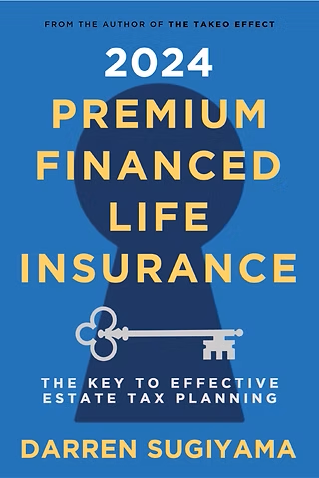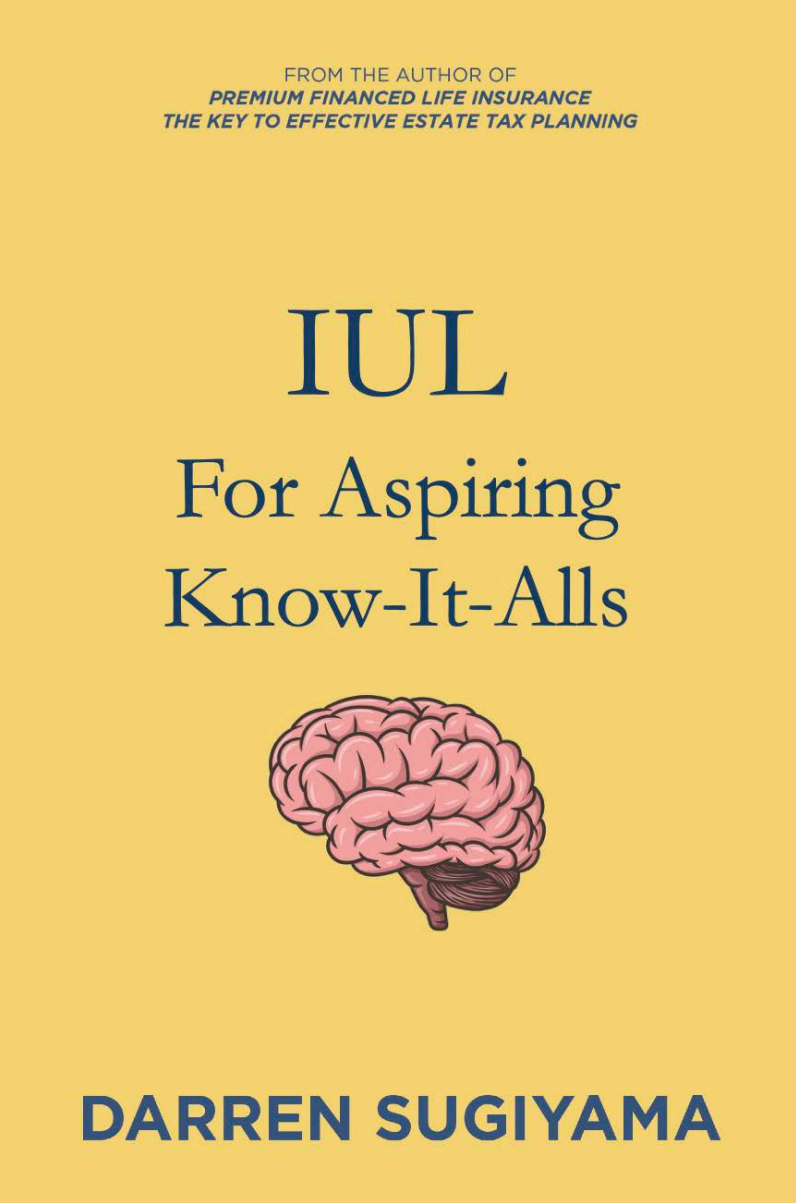LEADERS OF PREMIUM FINANCING
Where is Premium Financing Headed?
Between 2023-2025, interest rates have dramatically increased. Find out why Lionsmark Capital has flourished during this period while many other premium financing firms have imploded.
The Big Blue Narrative
Our commitment to under-promising and over-delivering is something that is built into Lionsmark Capital’s DNA. Part of our responsibility is to design the most suitable loan model for our clients. Sometimes that means maximizing leverage, and sometimes that means de-levering the premium financing proposition and improving the LTV ratios if the client is more conservative in nature.
Each loan model is custom designed based on the client’s net worth, liquidity, risk tolerance, time horizon, and their perspective on the use of leverage.
With 19 different lenders, 12 different carriers, and 7 different loan models on our platform, each client is advised and educated by our team regarding various loan rate constructions, collateral options, and each lenders’ loan terms.
The conservative and transparent approach to premium financing is what makes Lionsmark Capital so appealing to large financial institutions.

READ THE BOOK
The Book on Premium Financing
This book is the new updated 2024 Version, and addresses everything you need to know about premium financing, including:
How high interest rates affect premium financing
How to introduce PFLI to your high net worth clients
Which PFLI loan model is right for specific clients
The difference between responsible leverage & irresponsible leverage
How PFLI can be used in estate tax planning
Who PFLI is right for (and who it is wrong for)

INDEXED UNIVERSAL LIFE INSURANCE
Everything you need to know about IUL's
This book addresses the good, the bad, the ugly, and the raw truth about how IULs actually work. It transparently answers the most important questions:
How is the 0% floor is created?
How is the cap created?
How do policy charges affect net returns?
Which index option is right for you?
Are IULs appropriate for estate tax planning?
ASKED & ANSWERED
Lionsmark Capital FAQ's
What are the minimum requirements for premium financing?
Minimum Net Worth:
Penn Mutual: $15MM
Pacific Life: $10MM
Nationwide: $10MM
Transamerica: $5MM
Securian: $5MM
National Life Group (LSW): $2.5MM (up to age 49), $5MM (ages 50+)
Lincoln: $2.5MM (ages 30-50), $5MM (ages 51+)
Allianz: $1MM, or $500K NW (with $200K income), or $0 NW (with $400K income)
Minimum Policy Size:
$100K borrowed annual premium (or $1MM total loan amount)
How does our proprietary backtesting software work?
Our proprietary software creates a proxy for the premium financed IUL. We call it a "Leveraged Hypothetical Synthetic Asset." It is essentially a fictitious asset that behaves similar to an IUL in the sense that:
-Its growth is correlated with the S&P 500
-Its returns are restricted by a floor and a cap
-Charges are removed before the EOY index credit
We then analyze 121 different historical 40-year windows of S&P 500 performance and run the proxy's model through the 40-year period that produced the BEST Compounded Annual Growth Rate (CAGR) and the 40-year period that produced the WORST CAGR. The intent of this backtested analysis is to give the client a better understanding of a range of potential outcomes using an instrument that behaves similar to an IUL.
How are borrowing interest rates determined?
We work with 19 different lenders using multiple lending platforms. Different lenders will use a different index as the base rate (e.g., SOFR, CMT, Treasury rate, etc.), then add a spread on top of the base rate (typically between 1.00%-2.95%). Other lenders use the Prime rate as the base rate, minus a spread (typically between 0.00%-1.50).
We also have some lenders that offer multi-year fixed rates.
There are typically price breaks at $500K in Annual Premium Borrowed (APB), as well at $1MM in APB. If we design a case wherein the requested death benefit solves for an annual premium close to a price break, often times it will make sense to increase the annual premium so that your client receives a more favorable borrowing rate (due to hitting the price break), and paying off the loan earlier using the policy values. Often times, this adjustment can result in a lower total out-of-pocket interest expense for the client, yield a higher initial face amount, and produce a higher low point net death benefit.
Based on the multiple lenders Lionsmark Capital works with, borrowing rates depend on a number of variables including:
1. Client Net Worth
2. Client Liquidity
3. Whether or not the client is willing to move collateral (or just post it from their current institution)
4. Type of Collateral (e.g., Cash, Marketable Securities, Letter Of Credit, Real Estate, etc.)
5. Amount of Premium Borrowed
6. Paying Interest vs. Paying Partial Premium and Accruing Interest on Additional Borrowed Premium
7. State of Client’s Primary Residence
8. Ownership of Policy (e.g., Trust, Shell LLC, Operating Business, Individual Person, etc.)
9. Length of Loan Term (e.g., 1-Year, 5-Years, 10-Years, 20-Years, etc.)
While other premium financing intermediaries just offer generic loan terms from one lender, Lionsmark Capital evaluates the client’s unique situation and preferences, and finds the lender with:1. The lowest rate2. Most fitting loan terms, specific to the client’s preferencesEach case is different, and we will design the most mathematically prudent premium financing design for your client on a case-by-case basis.
What types of collateral will lenders accept?
We have a variety of lenders on our platform that accept different forms of collateral.
Most lenders will accept:
-Cash (typically credited an advanced rate of 100%)
-CDs (typically credited an advanced rate of 100%)
-Bonds (typically credited an advanced rate of 90%)
-Marketable Securities (typically credited an advanced rate of 50%-75%, depending on the portfolio)
-Cash Value of existing life insurance policies (typically credited an advanced rate of 95%)
-Real Estate Equity
Lenders will NOT accept:
-Business valuation
-401(k) or IRA
-Cryptocurrency
-Assets held overseas
DIVE DEEPER
Featured Videos
What Makes Lionsmark Unique?
What Lionsmark Capital does that no other premium financing intermediary can do.
Premium Financing Collateral
The biggest mistakes other firms make when projecting collateral requirements.
Cost of Liquidity (Estate Tax)
How to prevent your clients’ adult children from fighting over their inheritance.
Watch More
PFLI Collateral Continued
Why so many premium financing clients get huge collateral calls.
Custom Loan Models
Why one-size-fits-all premium financing strategies don’t make sense.
Family Governance & PFLI
The importance of estate tax planning, premium financed life insurance, and ILITs.
LEARN ABOUT DARREN
Who is Darren Sugiyama?
Darren Sugiyama – Founder & CEO of Lionsmark Capital – is a 13-time author whose books are currently being distributed in Australia, Brasil, Canada, Croatia, Czechoslovakia, Denmark, India, Italy, Japan, New Zealand, Norway, Singapore, Sweden, the United Kingdom, and the United States Of America. His books include Premium Financed Life Insurance – The Key To Effective Estate Tax Planning and IUL For Aspiring Know-It-Alls.
Darren consults with investment advisory firms, family offices, estate tax attorneys, CPAs, and life insurance agents, designing custom premium financed life insurance arrangements for their high net worth clients.

GET IN CONTACT
Want to partner with Lionsmark?
Tell us a little bit more about your organization and we'll get in touch with you right away.
STAY INFORMED
The Lionsmark Newsletter

Lionsmark Capital, Inc Copyright 2025